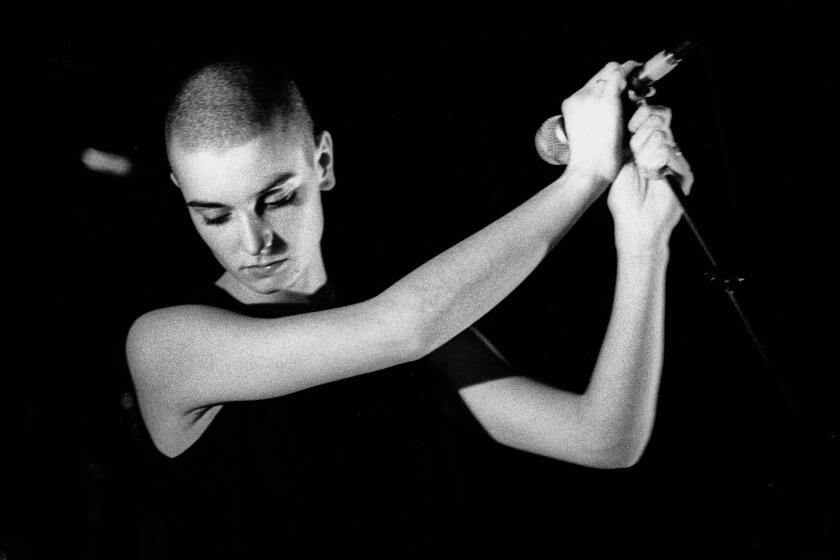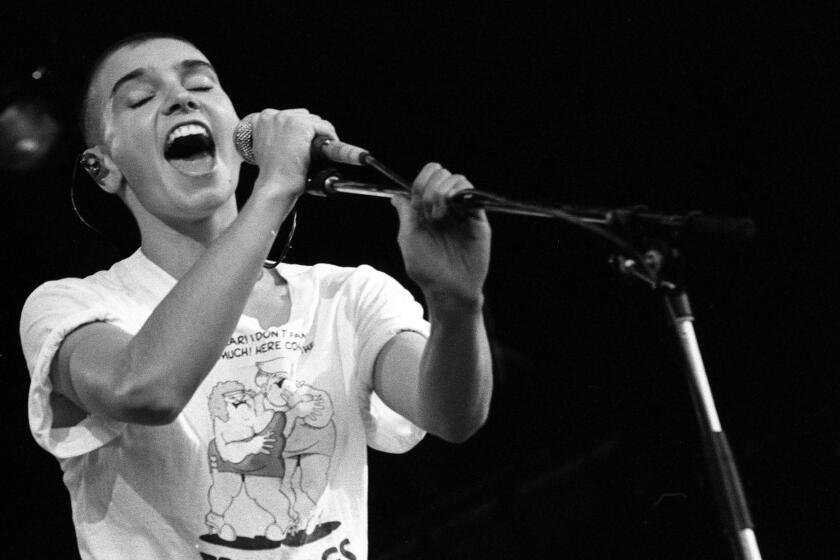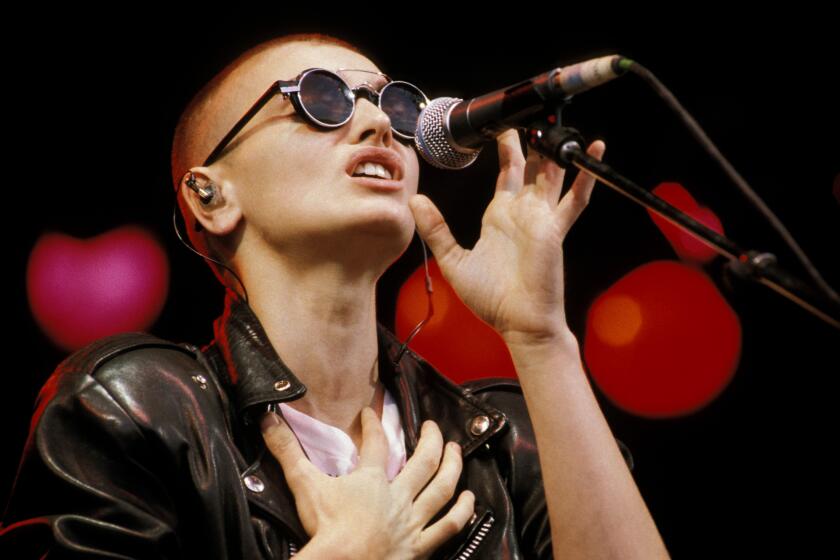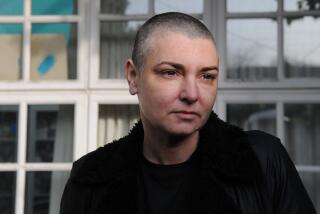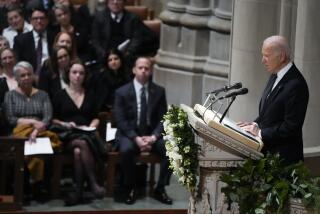Singer-songwriter Sinéad O’Connor died of natural causes at 56, London coroner says
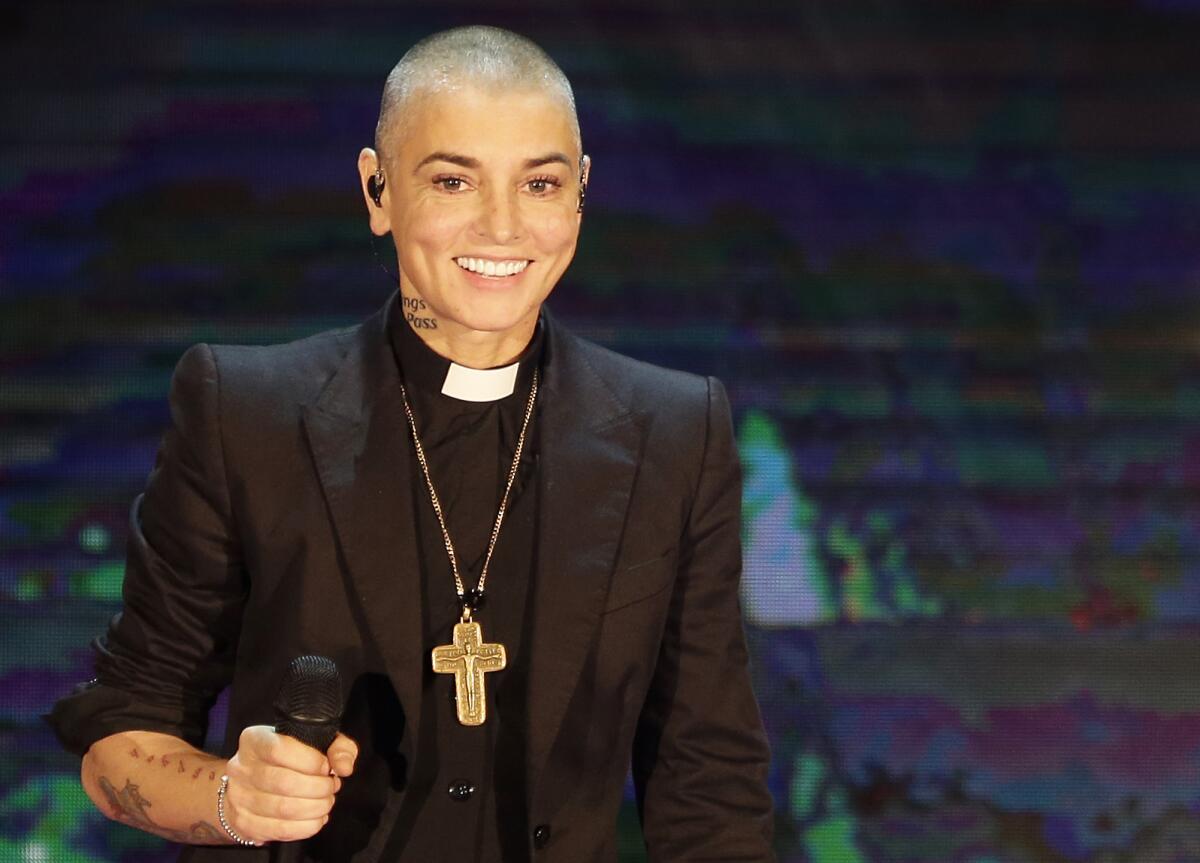
- Share via
Irish singer-songwriter Sinéad O’Connor died of natural causes last summer, a London coroner said Tuesday.
The “Mandinka” and “Nothing Compares 2 U” hitmaker was found unresponsive at her South London home on July 26 and was pronounced dead shortly after. She was 56.
“This is to confirm that Ms O’Connor died of natural causes,” the Southwark Coroner’s Court said Tuesday in a brief statement obtained by the BBC. “The coroner has therefore ceased their involvement in her death.”
Sinead O’Connor, the haunting singer who shot to fame in the ‘90s and sparked controversy with an anti-Catholic protest on live TV in the U.S., has died at 56.
In July, the coroner’s officer confirmed O’Connor’s death in the Lambeth borough of South London and announced that since no medical cause of death was given, officials would conduct an autopsy. Though her death was sudden, authorities did not treat it as suspicious, according to reports.
Her family announced that she died with a brief statement in July, writing, “It is with great sadness that we announce the passing of our beloved Sinéad. Her family and friends are devastated and have requested privacy at this very difficult time.”
O’Connor shot to fame in 1990 after releasing the Prince-written hit “Nothing Compares 2 U.” However, two years later, her mainstream career effectively ended after she performed Bob Marley’s “War” on “Saturday Night Live” and tore a photograph of Pope John Paul II, throwing the shredded bits toward a camera while exclaiming, “Fight the real enemy.”
O’Connor was pilloried for her ‘SNL’ protest against the Catholic Church. But she never stopped speaking out against injustice and inspiring others to do the same.
Though she still identified as Catholic at the height of her career, O’Connor was outspoken about child abuse within the church and the church’s influence over her native Ireland’s government. (The singer changed her name to Shuhada’ Sadaqat later in life, when she converted to Islam.)
“I come from a tradition of Irish artists where I am principally concerned with affecting my society,” O’Connor told The Times in 2012. “Artists are supposed to act as an emergency fire service when it comes to spiritual conflict — not preaching or telling people what to do but being a little light that tells us that there is a spirit world.”
In more recent years, her mental health struggles often threatened to eclipse her art. Even so, her music remained influential to a generation that viewed her as a radical antithesis to the more manicured image expected of female pop stars of the era.
O’Connor spoke out against a culture of child abuse, misogyny and racism and paid the price. ‘Nothing Compares’ director Kathryn Ferguson says not enough has changed.
O’Connor weathered apparent suicide attempts in 2015 and 2017, including one that she announced on Facebook to concerned fans and family. In both circumstances, she was hospitalized after authorities were alerted.
The Grammy-winning singer started to perform again in 2018. The following year she embarked on a North American tour, which ended with a string of shows in February 2020 at the El Rey Theater in Los Angeles, as well as stops in Solana Beach and Santa Cruz — her last known performances.
In 2020, she canceled several 2021 shows upon revealing that she would be entering a one-year treatment program for trauma and addiction. She had planned to hit the road again in 2022 to tour the U.S. and Ireland; however, days after her 17-year-old son Shane died by suicide in 2021, she alarmed fans when she tweeted “I’ve decided to follow my son.” She later went to a hospital and asked for help.
Times staff writer Nardine Saad contributed to this report.
More to Read
The biggest entertainment stories
Get our big stories about Hollywood, film, television, music, arts, culture and more right in your inbox as soon as they publish.
You may occasionally receive promotional content from the Los Angeles Times.
